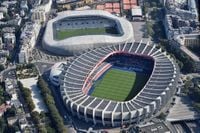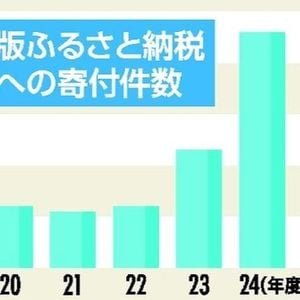The Paris Saint-Germain (PSG) is making significant strides towards establishing a new stadium as the club prepares to leave its historic Parc des Princes home. With ambitions to create a "PSG Land" that includes a stadium, shopping center, cinema, hotel, and performance hall, the club is currently evaluating two prime locations in the Île-de-France region: Massy and Poissy.
As the PSG gears up for a crucial Champions League semi-final, discussions surrounding the future stadium have resurfaced, particularly due to the Paris City Hall's refusal to sell the Parc des Princes. The club's management has decided to pursue an exit strategy, scouting for suitable land to accommodate its ambitious project, which is estimated to cost around one billion euros, pending approval from the club's Qatari owners.
According to reports from L'Équipe, an announcement regarding the chosen city for the new stadium is expected in the coming weeks. The PSG is likely to enter into exclusive negotiations with one of the two finalist municipalities. The decision-making process is not only contingent on logistical considerations but also on the approval from Doha, where the club's financial backing resides.
Currently, Massy and Poissy are the frontrunners for the project. Massy offers two potential sites: the commercial sector of Tuileries and the ZAC de la Bonde. However, one of the sites in Massy is classified as agricultural land, which could lead to ecological opposition. Additionally, Massy is located approximately 40 kilometers from the PSG's training center in Poissy, which may complicate daily operations for the club.
In contrast, Poissy has the advantage of being in close proximity to the PSG's training facility, which would streamline logistics. The proposed site in Poissy is situated on land currently owned by Stellantis, and the transfer of this land is subject to complex economic and political negotiations. The decision to sell or repurpose this land is politically sensitive, especially with municipal elections approaching in 2026, which could influence the final decision on the stadium's location.
While the PSG has emphasized its determination to move, there have been suggestions that the club might wait for the outcome of the upcoming municipal elections before finalizing its decision. Some sources speculate that the PSG is keen to see who will succeed Anne Hidalgo as mayor of Paris, as this could reopen discussions about the possibility of remaining at the Parc des Princes. However, the club's management has consistently denied this, asserting that they are committed to relocating.
The PSG's future stadium project is not merely about changing addresses; it reflects the club's broader ambitions and the desire to enhance its brand and operational capabilities. The new stadium is expected to accommodate over 60,000 spectators, aligning with the club's aspirations to host major events and further establish its presence in the competitive landscape of European football.
Candidate municipalities have been proactive in preparing their proposals, conducting various studies to meet the PSG's stringent requirements, including technical specifications, environmental standards, and public transport accessibility. The club's request for a stadium with ample seating capacity and supporting commercial infrastructures has prompted local governments to present their best cases.
Despite the ongoing deliberations, the PSG remains focused on its Champions League ambitions, with many fans currently preoccupied with the club's performance on the pitch rather than the off-field developments. However, as the season draws to a close, the fate of the PSG's future stadium is likely to become a more prominent topic of discussion among supporters and stakeholders alike.
In the meantime, the Paris FC, a local rival, is closely monitoring the situation, as the decision regarding the PSG's new stadium could have implications for its own operations and fan engagement. The PSG's management has indicated that communication regarding the stadium's location will be forthcoming, likely before the summer of 2025.
As the PSG navigates this pivotal moment in its history, the stakes are high. The choice between Massy and Poissy is not just a logistical decision; it embodies the ambitions of a club that seeks to solidify its legacy in French and European football. With significant financial backing and a clear vision, the PSG is poised to make a landmark decision that will shape its future for years to come.





